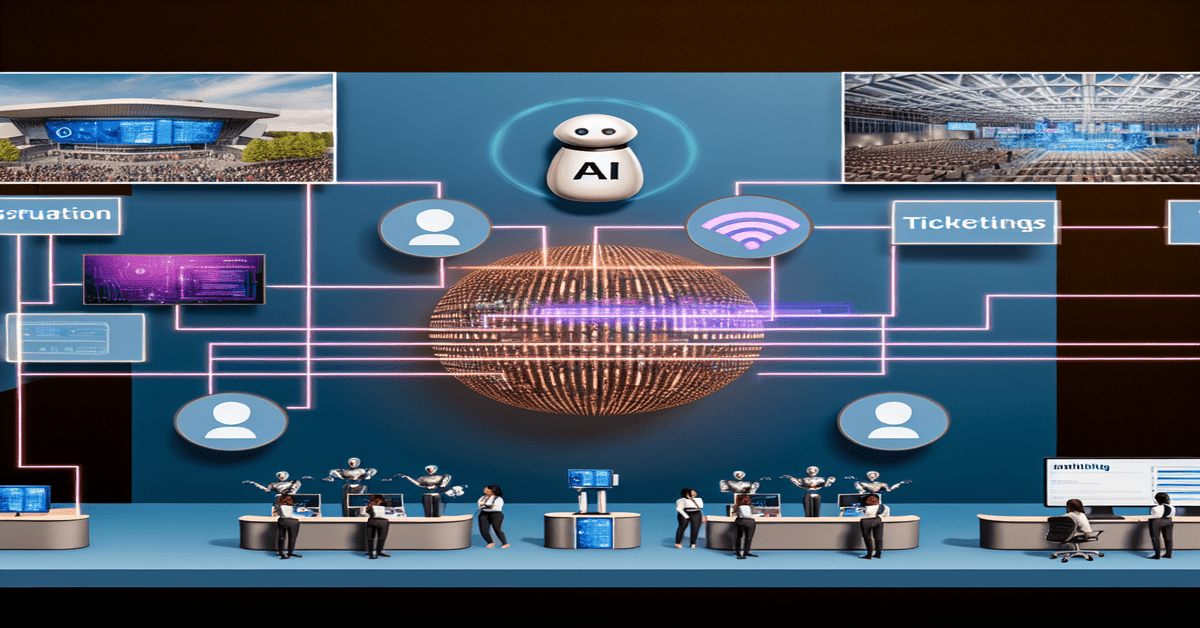Navigating the Evolving Landscape of Cybersecurity and AI in the Event Industry
As technology continues to advance at a rapid pace, the event industry finds itself at the forefront of a transformative era. The integration of artificial intelligence (AI) and the ever-present need for robust cybersecurity measures have become critical factors in shaping the future of events. In this blog post, we will delve into the insights shared by Maritz tech leaders on navigating this complex landscape and explore the implications for event professionals.
The Double-Edged Sword of Event Technology
The event industry has embraced technology with open arms, leveraging it to streamline operations, enhance attendee experiences, and unlock new possibilities. However, with great power comes great responsibility. As highlighted by Maritz tech leaders, events, especially large-scale ones, are particularly vulnerable to cyber threats due to the extensive use of technology for various aspects such as registration, ticketing, and data management.
Safeguarding Attendee Data: A Top Priority
In an era where data breaches make headlines all too often, protecting attendee data has become a paramount concern for event organizers. The consequences of a data breach extend beyond financial losses; it can severely damage an event’s reputation and erode attendee trust. Maritz tech leaders emphasize the importance of implementing **robust security measures** to mitigate these risks and ensure the confidentiality and integrity of attendee information.
Moreover, compliance with regulations such as the General Data Protection Regulation (GDPR) and the California Consumer Privacy Act (CCPA) is non-negotiable. Event organizers must navigate the complexities of these regulations to avoid legal repercussions and maintain the trust of their attendees.
Harnessing the Power of AI for Enhanced Experiences
While cybersecurity remains a critical focus, the potential of AI in revolutionizing the event industry cannot be overlooked. AI-powered solutions have the ability to transform the attendee experience by offering **personalized content**, improved navigation, and real-time feedback. Imagine an event where attendees receive tailored recommendations based on their preferences, where intelligent chatbots assist with inquiries, and where real-time data analysis optimizes the overall event flow.
Streamlining Event Operations with AI
Beyond enhancing the attendee experience, AI can also play a significant role in streamlining event operations. From automating registration processes to managing logistics and providing efficient customer service, AI-driven solutions can alleviate the workload on event staff and improve overall efficiency.
One particularly promising application of AI in the event industry is **predictive analytics**. By leveraging historical data and machine learning algorithms, event organizers can forecast attendance numbers, optimize resource allocation, and identify potential issues before they arise. This proactive approach allows for better decision-making and risk mitigation.
Navigating the Integration Challenges
While the benefits of AI in the event industry are clear, integrating these technologies while maintaining robust cybersecurity measures presents its own set of challenges. Maritz tech leaders highlight the delicate balance between leveraging AI for innovation and ensuring that security remains a top priority.
One key aspect of successful integration is **training and awareness**. Event staff must be well-versed in both the capabilities of AI and the best practices for maintaining cybersecurity. Regular training sessions and workshops can help bridge the knowledge gap and foster a culture of security awareness within the event team.
Best Practices for Secure and Innovative Events
To navigate the evolving landscape of cybersecurity and AI in the event industry, Maritz tech leaders recommend several best practices:
1. **Conduct thorough risk assessments**: Regularly assess potential vulnerabilities and identify areas where security measures need to be strengthened.
2. **Collaborate with experts**: Partner with IT professionals and cybersecurity specialists to implement robust security protocols and stay updated on the latest threats and mitigation strategies.
3. **Continuously monitor systems**: During events, maintain vigilant monitoring of all systems to detect and respond to any suspicious activities or potential cyber threats promptly.
Looking Ahead: The Future of Events
As technology continues to evolve, so will the integration of AI and cybersecurity in the event industry. Event organizers must remain proactive in staying informed about the latest trends, best practices, and emerging technologies. By embracing innovation while prioritizing security, the event industry can unlock new possibilities and deliver truly exceptional experiences to attendees.
The insights shared by Maritz tech leaders serve as a valuable compass for navigating this exciting yet challenging landscape. By striking the right balance between leveraging AI for enhanced experiences and maintaining robust cybersecurity measures, event professionals can confidently step into the future and shape the events of tomorrow.
#EventTech #CyberSecurity #ArtificialIntelligence
-> Original article and inspiration provided by TSNN
-> Connect with one of our AI Strategists today at Opahl Technologies


